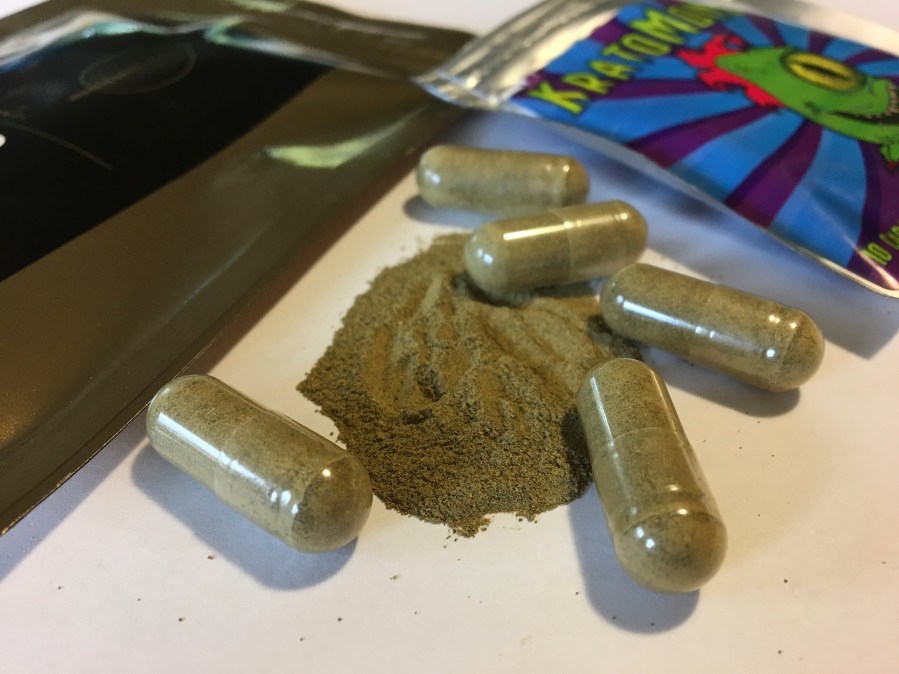If you or someone you know is struggling with an alcohol, drug or other substance abuse problem, call the free and confidential helpline of the Substance Abuse and Mental Health Services Administration at 1-800-662-HELP (1-800-662-4357), or visit findtreatment.gov.
The Orange County Board of Supervisors has passed an ordinance that prohibits the sale, distribution or possession of synthetic kratom products.
A press release announcing the ordinance being passed referred to synthetic kratom, which is sold primarily in smoke and vape shops as a pain reliever and a product that helps opioid addicts quit, as “legal morphine.”
Kratom itself is derived from Southeast Asian tree leaves and is sold in a variety of ways, including loose powder, capsule, gummy and liquid forms. O.C.’s ordinance does not ban those products, but does require proper labeling and age restrictions, officials said.
According to the U.S. Drug Enforcement Administration, consumption of kratom in low doses produces stimulant effects, while high doses produce sedative effects.
Kratom can also lead to psychotic symptoms and psychological and physiological dependence, the DEA explained.
“Kratom leaves contain two major psychoactive ingredients (mitragynine and 7-hydroxymytragynine). These leaves are crushed and then smoked, brewed with tea, or placed into gel capsules. Kratom has a long history of use in Southeast Asia, where it is commonly known as thang, kakuam, thom, ketum, and biak. In the U.S., the abuse of kratom has increased markedly in recent years,” the DEA’s kratom drug fact sheet reads.

Just over two weeks ago, the U.S. Food and Drug Administration announced “a bold step” was being taken to restrict certain 7-hydroxymytragynine (also known as 7-OH) products considered “dangerous and illegal” from getting into American consumers’ hands. The FDA explicitly stated they were targeting 7-OH – a concentrated byproduct of the kratom plant – and not natural kratom products.
“This recommendation follows a thorough medical and scientific analysis by the FDA and is one of several efforts to address the agency’s concerns around the growing availability and use of 7-OH opioid products,” the FDA said. “There are no FDA-approved 7-OH drugs, 7-OH is not lawful in dietary supplements and 7-OH cannot be lawfully added to conventional foods.”
Other jurisdictions have gone further and outlawed kratom completely; examples in Southern California include Newport Beach, Oceanside and San Diego. A total of seven states have done the same: Alabama, Arkansas, Indiana, Louisiana, Rhode Island, Vermont and Wisconsin.
Now, the entirety of O.C. will join that list.
“Every few years we learn about dangerous narcotics that can be created by utilizing ingredients purchased over the counter,” Supervisor Janet Nguyen, who authored the ordinance, said. “Kratom has been linked to thousands of cases of liver damage, seizures, and even death.”
The ordinance will take effect in Orange County later this summer, officials said, without providing an exact date.
